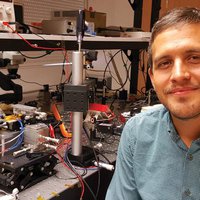Biotechnology & medicine
Jini Kim
A stint helping the government altered her view of her health-care business.

Europe
José Luis Rubio
His technology reduces the number of unnecessary biopsies performed to diagnose skin cancer

Global
Gilad Evrony
Single-neuron genome sequencing is revealing clues about what goes wrong in the brain.

Latin America
CLAUDIO TRINDADE
Created a new intraocular implant device for treating corneal diseases

Europe
Romain Lacombe
The first personal and wearable sensor to measure indoor and outdoor air pollutants
